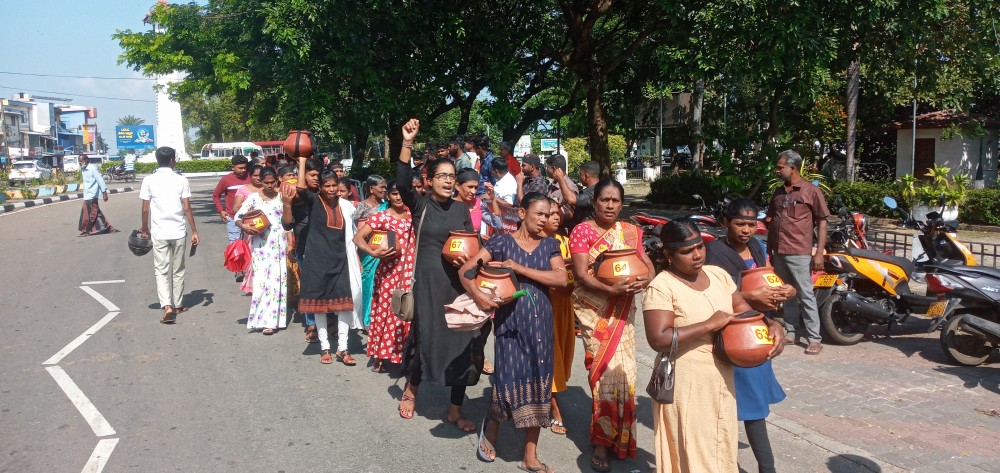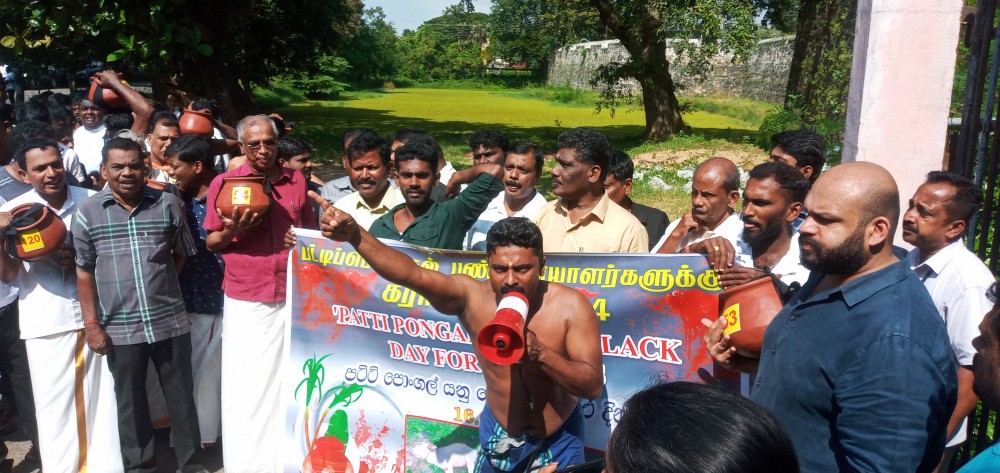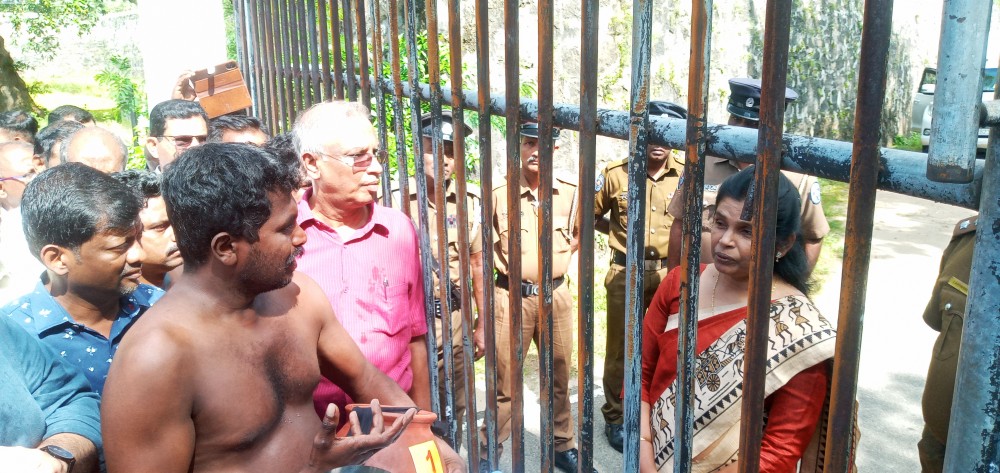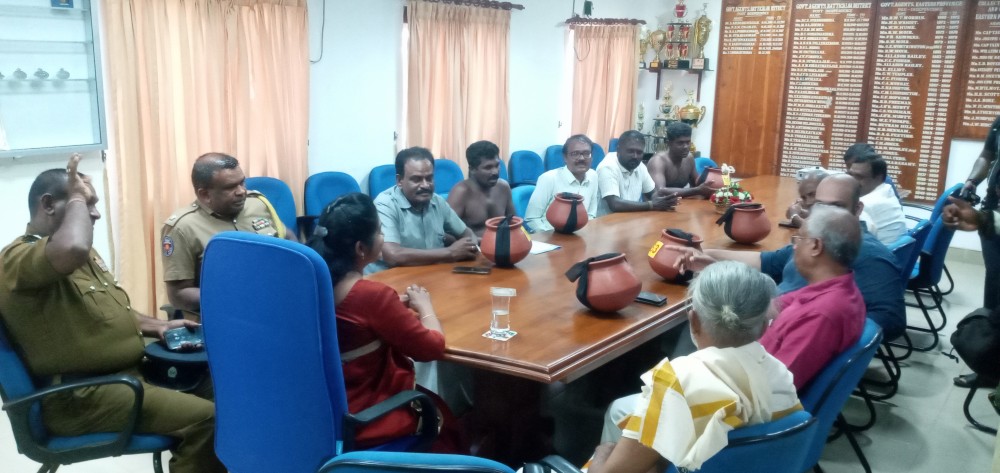
Tamil farmers rallied through Batticaloa today on Patti Pongal to highlight their ongoing plight as illegal Sinhala settlers continue to destroy their livestock and grab their lands.
Patti Pongal, also known as Maatu Pongal, is a festival celebrated by Tamils to give thanks to cattle for allowing farmers to cultivate and harvest their crops. Cows are often bathed and adorned with flower garlands and bells.

However, this year to mark Patti Pongal and 126 days of continuous protest, Tamils carried 126 Pongal pots as they demonstrated from Gandhi Park to the District Secretariat office, demanding that the illegal encroachers should be removed from the pastureland in Madhavanai and Mayilathamadu.

Once the protest reached the District Secretariat Office, the protesters chanted for the Government Agent to come out and speak to the farmers.

Nimalan, the head of the Cattle Welfare Organisation met with the Government Agent who agreed to investigate the ongoing encroachment of their land.
The protest was attended by Tamil MPs MA Sumanthiran, R Shankaiyan, former Northern Provincial Councillor T Ravikaran alongside religious leaders and civil society activists.

Tamil farmers in Mayilathamadu and Madhavanai, have been protesting the encroachment of their lands and the killing of their cattle by Sinhala settlers since at least 2021. In recent months, tensions have risen between Sinhalese settlers and Tamil farmers as Sinhala settlers have escalated their efforts to attack livestock owned by Tamil farmers.
In one incident in October 2023, Sinhala settlers had fed explosives to a cow owned by a Tamil farmer, ripping its jaw open.
At the time, the farmer said:
“They have been doing awful things like this in Mayilathamadu. They've fed explosives. They've electrocuted the animals. They've fired shots at the animals.”
Despite their longstanding protest, the Sri Lankan government has failed to intervene and redress the grievances of Tamil farmers.
